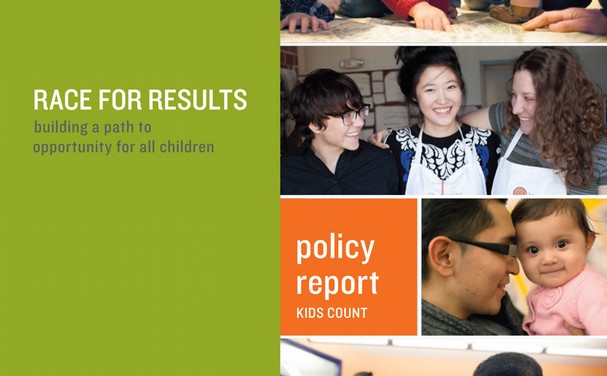Mississippi Children Continue to Lack Needed Resources
April 30th, 2014
Mississippi children are falling further behind the rest of the nation’s children in vital areas such as education and health. The struggles are especially present in the African-American community, with several key milestones such as reading levels and high school graduation rates falling well short of adequate levels. With a youth population that is now majority-minority, it behooves Mississippi to begin altering this picture for the better.
The Annie E. Casey Foundation recently released Race for Results, a report that highlights the changing demographics of U.S. children. The report explores how well children are able to realize their potential and become productive members of society. The report synthesizes several indicators to arrive at a single composite score that compares how children are progressing on key milestones by state – such as fourth graders who score at or above proficient in reading or high school students graduating on time.
According to the report, both African-American and white children in Mississippi rank second to last among states for their composite score. Mississippi’s African-American children, however, fare far worse when compared with their in-state white counterparts with scores of 243 to 559, respectively. Nationally, children fared better overall, but disparities were still found among ethnic groups—African-American children scored 345 and white children scored 704 on the indicators.
The report additionally provides insight into America’s changing demographics and what they might mean for our future. In 2013, there were more children of color born in the United States than white children, and by 2018 it is estimated that children of color will make up the majority of children in our nation. Mississippi has had a majority-minority child population since 2010 but, unlike many other states, this phenomenon has been driven mostly by the high numbers of African-American children instead of Hispanic children.
Fifty percent of African-American children born in Mississippi grow up in poverty as opposed to 16% of white children. Nationally, these same rates are 39% to 14%, respectively. Poverty results in higher incarceration, increased school dropouts, and lower academic achievement rates. It is imperative that Mississippi take more proactive steps to address poverty and disparate opportunities among children of color.
One of the most powerful anti-poverty tools available is an adequate investment in education for Mississippi’s children. Unfortunately, over the past several years our schools have been underfunded by a cumulative $1.5 billion dollars. Funding for next fiscal year will remain $257 million below the full amount required by the Mississippi Adequate Education Program despite gains in revenue. Underfunding has resulted in school districts in impoverished areas of the state suffering financially, and their students not having the resources needed to receive an adequate education. Lack of funding extends to higher education as well. Many improvements are needed to reduce barriers to higher education for low income students, and the state’s current financial aid system mostly aids students from higher income families.
Not investing in our education system has long term economic consequences. Mississippi is already beginning to feel the impact with low-skill, low pay jobs replacing those that were lost during the financial crisis. According to a recent study from Georgetown, this will become somewhat of a norm by 2018 with Mississippi ranking near the top for the attraction of jobs that do not require a high school degree, and last in the nation for attracting jobs that require a bachelor degree.
Our state is not doing enough to ensure that every child has a strong, secure future. It is time for Mississippi to begin heavily investing in its low-income communities. The Race for Results report calls on states to advance the policy conversation on these issues and to back up that agenda with sufficient resources. Without this investment, Mississippi will see its economic potential limited or even capped. If we cannot find the means or collective will to change these realities now, we won’t have the capacity to do so in the future.







